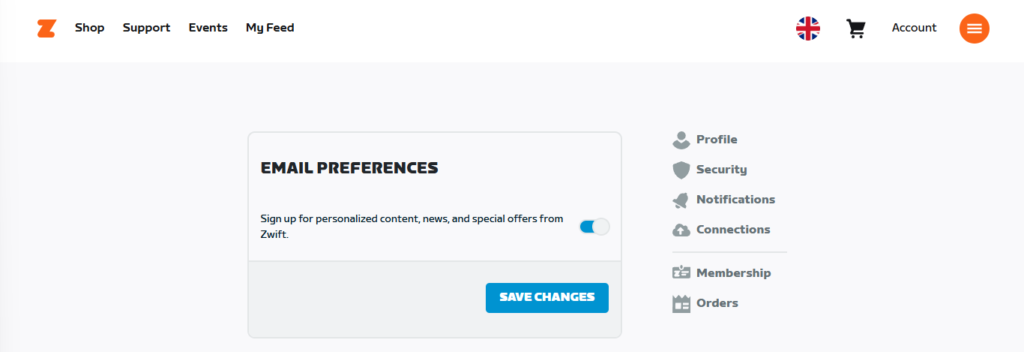Table of Contents
Today, Zwift announced the upcoming launch of an assessment-oriented training program. Zwift Camp: Baseline contains six stages – three workouts and three tests – and upon completion, you receive a report assessing your cycling strengths and limiters and advising on next steps.
Read on for details of Camp stages, schedule, and more…
Stage Details
Sprinting
Get a walkthrough of the sprint workout and test >
The Sprint Booster workout has you tackle high-intensity sprint intervals, with recovery sections in between. The full workout is 55 minutes long with 10 sprint segments, while the lite version is 29 minutes with 6 sprints.
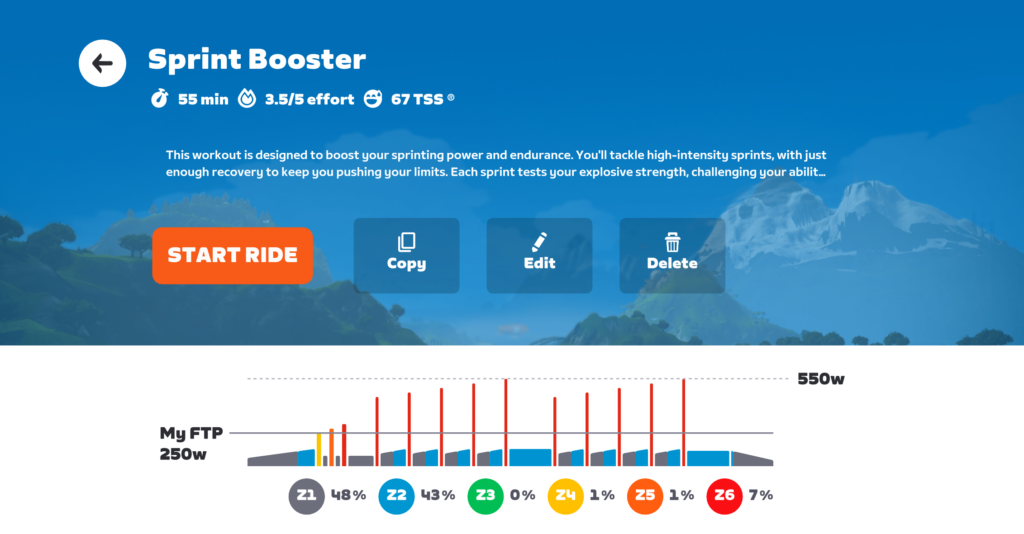
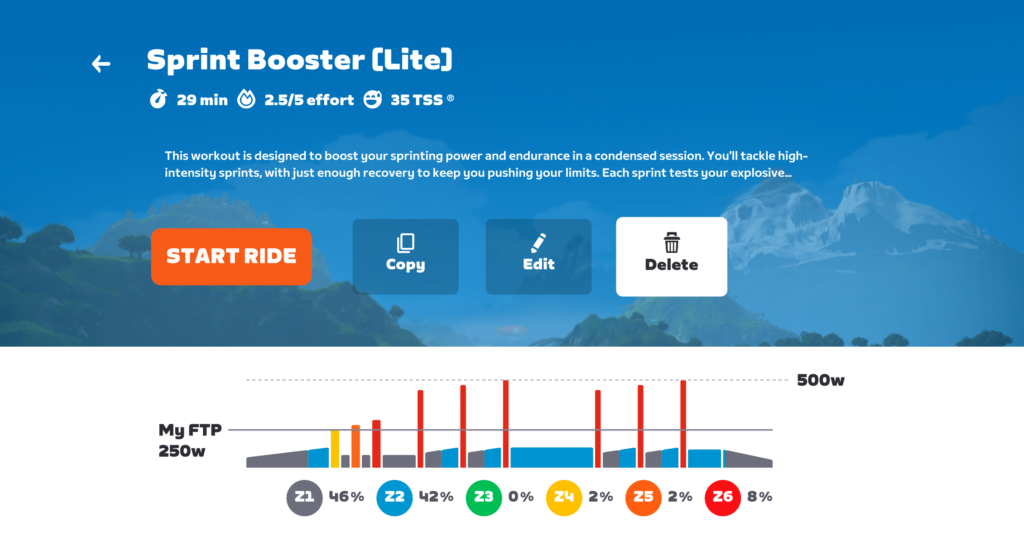
After finishing your chosen Sprint Booster workout, let your legs recover for at least 1-2 days, then take the Sprint Test. The important part of this test is its three all-out 15-second sprint efforts. Your goal is to get your best possible sprint power in these segments, so Zwift can accurately assess your sprinting abilities!
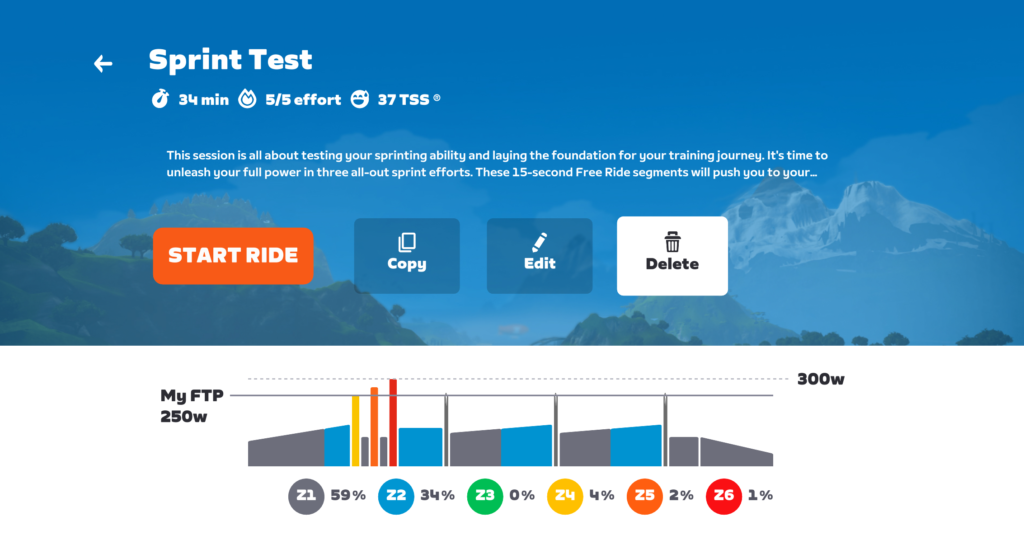
After completing the Sprint Test, you’ll receive an email from Zwift summarizing your results. Think you can do better? You can do the test multiple times if you’d like, and you’ll get an email each time.
Attacking
Next, it’s time to work on your ability to attack! The Attack the Bunch workout features high-intensity intervals ranging from 45 seconds to 3 minutes. As the workout progresses, intervals get longer, but the target power also drops. The full workout is 53 minutes long with 8 hard intervals, while the lite version is 34 minutes with 6 hard intervals.
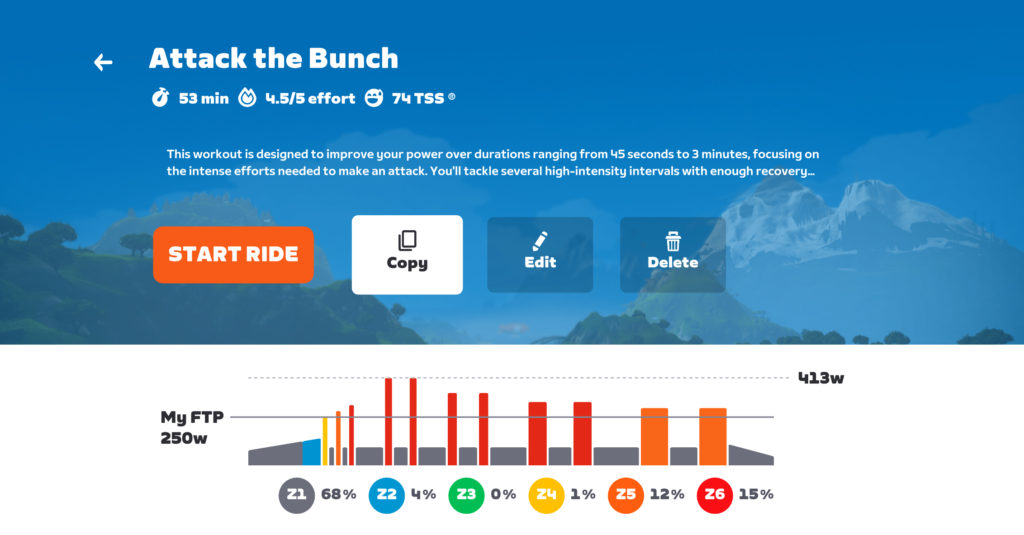
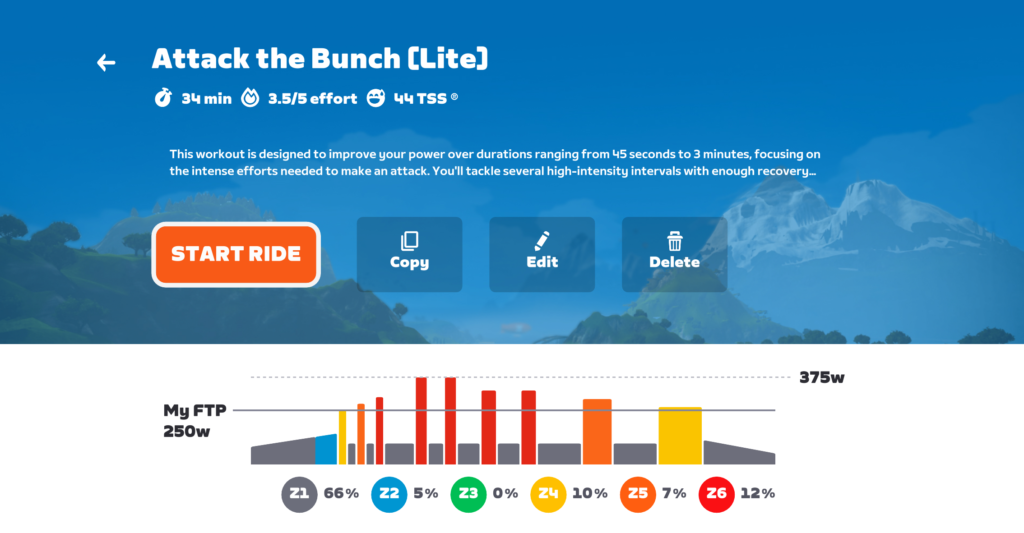
After finishing your chosen Attack the Bunch workout, let your legs recover for at least 1-2 days, then take the Attacking Test. The important part of this test is its two all-out 60-second efforts. Again, your goal is to get your best possible power in these segments, so Zwift can accurately assess your attacking abilities.
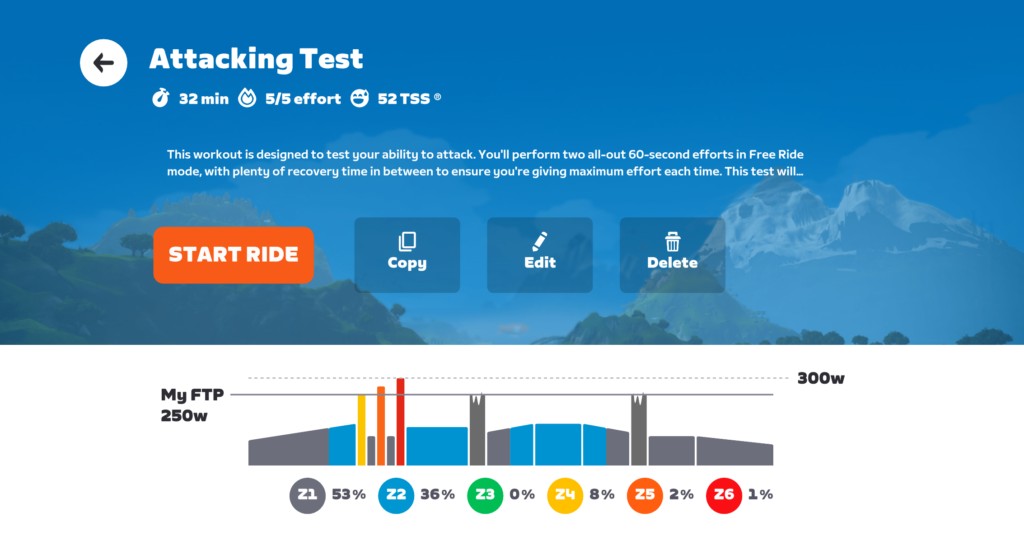
After completing the Attacking Test, you’ll receive an email from Zwift summarizing your results. Think you can do better? You can do the test multiple times if you’d like, and you’ll get an email each time.
Endurance
We’ve looked at sprint and attacking power, and now it’s time to tackle those lengthier endurance intervals. The Endurance Elevator workout has you tackle intervals at or around your FTP, with recovery sections in between. The full workout is 59 minutes long with 3 key intervals, while the lite version is 33 minutes with 2 key intervals.
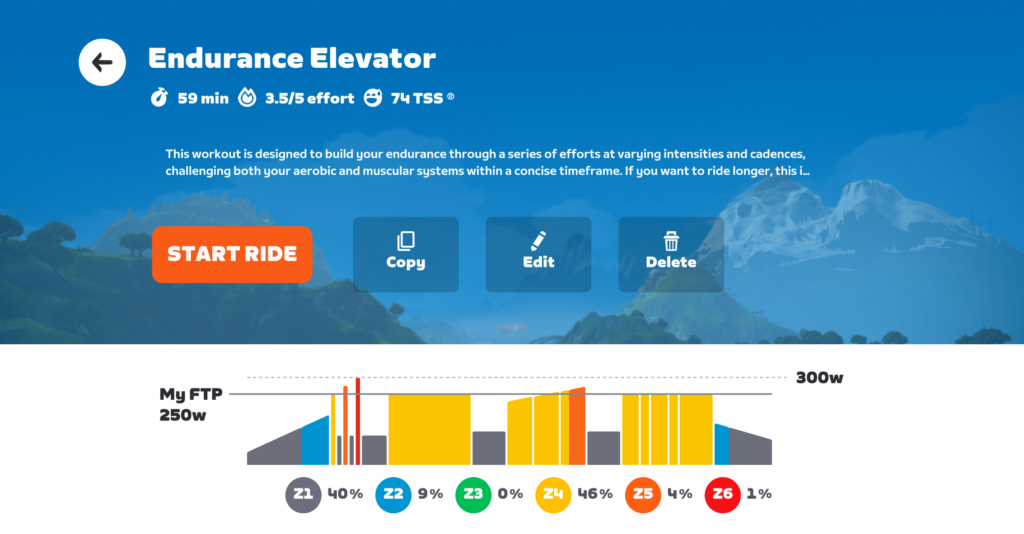
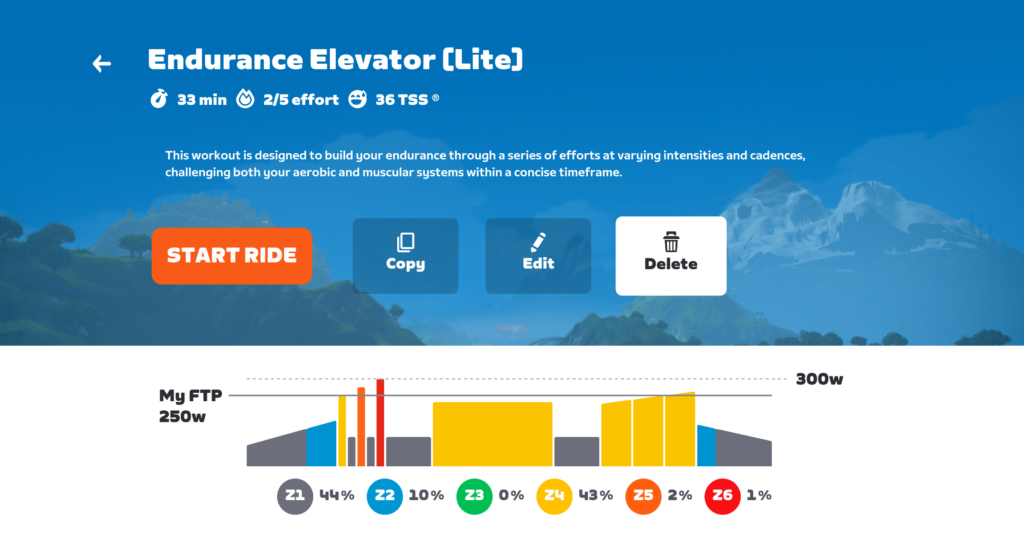
For the endurance test, riders won’t execute a structured workout. Instead, you’ll take on the Elevation Evaluation route, which lets you get a quick warmup before taking you up The Grade. (Haven’t ridden The Grade yet? Read my review of the experience…)
Important: this stage isn’t testing your FTP, exactly. Zwift is taking your maximal 10-minute power from this ride and using it as your endurance power number. Our recommendation: start your 10-minute interval at the bottom of The Grade, and hold your best power to the 10-minute mark!
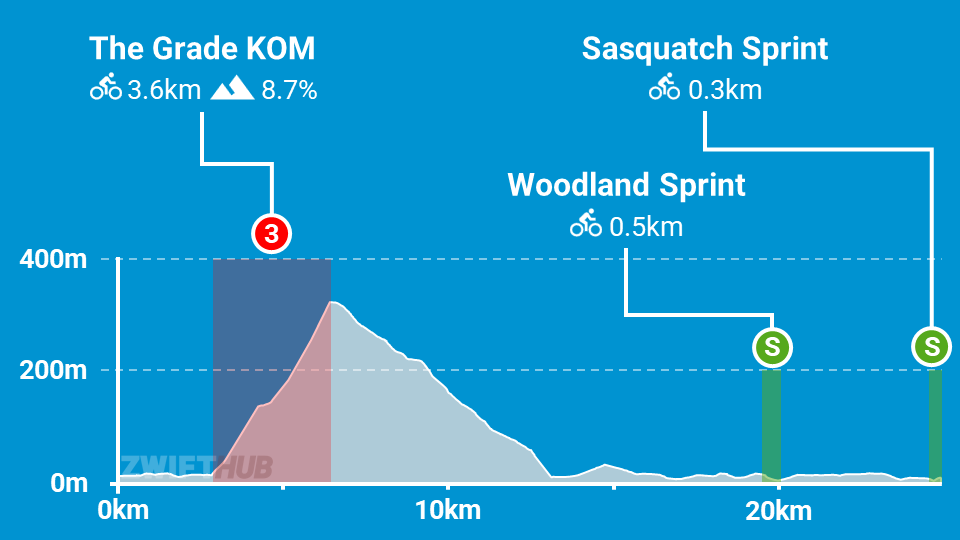
Be sure to finish the full route to get credit for the stage.
After completing the endurance test, you’ll receive an email from Zwift summarizing your results. Think you can do better? You can do the test multiple times if you’d like, and you’ll get an email each time.
Rider Strength Report
Upon completion of all six stages, you will receive a “Rider Strengths Report” email from Zwift sharing your strength as well as your limiter.
For the cycling nerds in the room: Zwift isn’t disclosing exactly how they’re determining your strength and limiter, because they want to make the results simple and actionable for newer riders. But their FAQ says, “The data from your best effort with these tests is captured and then compared against the rest of the wide and diverse set of Zwifters. Your relative score for each ability is then calculated, which results in your ‘strengths ranking’ where you can discover what is your highest strength versus your area for improvement. Remember, you can repeat these workouts as many times as you want, only your best performance will be taken into account.”
Your strengths will be one of the following:
- Sprinting
- Attacking
- Endurance
- Versatility (note: this will be your strength if your ability in two or more of the tests is close to equal)
Based on your strength, you’ll get recommendations for routes and races that fit you best.
The report will also share your limiter, which will be one of the following:
- Sprinting
- Attacking
- Endurance
You will get recommendations for ways to improve your limiter, including taking on a particular training plan, or doing one of the new Challenges (see below).
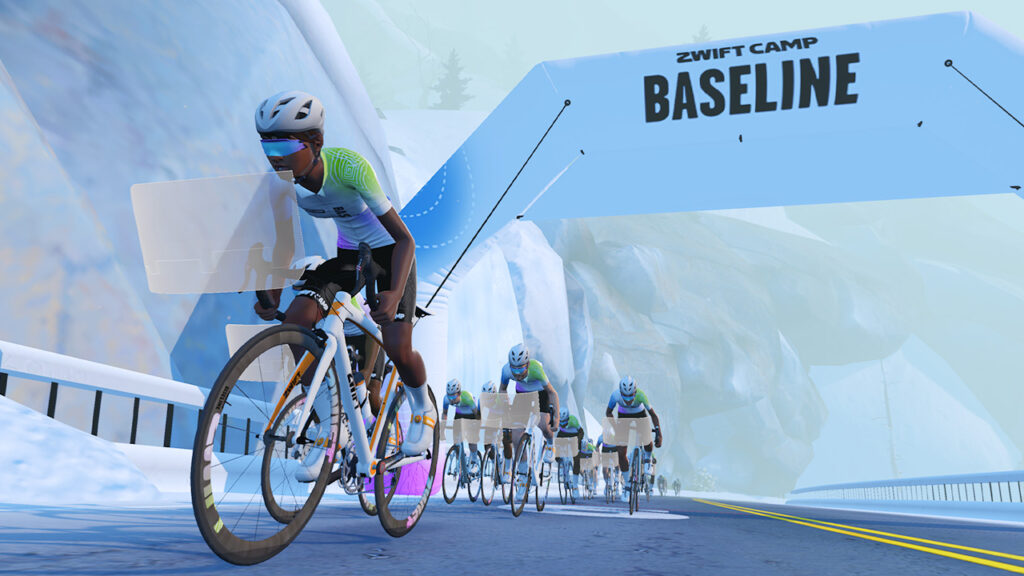
Important Note: Email Opt In
You will not receive any emails for this program or any Zwift campaign unless you’ve opted in to receive Zwift emails in your profile. To do so, sign into your account at zwift.com/sign-in and go to Profile>Notifications, then enable the setting and save your changes:
Followup Challenges
Zwift Camp: Baseline isn’t a training program as much as it is an assessment of your abilities. The magic happens when Zwift assesses your strengths and limiter, then points you to workouts that help you improve the area most limiting your cycling fitness. This is where three new Zwift mini-challenges will come into play:
- Sprinting Challenge
- Attacking Challenge
- Endurance Challenge
These will be available starting December 23, and each mini challenge will contain a mix of ERG workouts, route-based workouts, and (possibly) other activities to help boost your fitness in a specific area.
UPDATE December 23: Read all about these challenges >
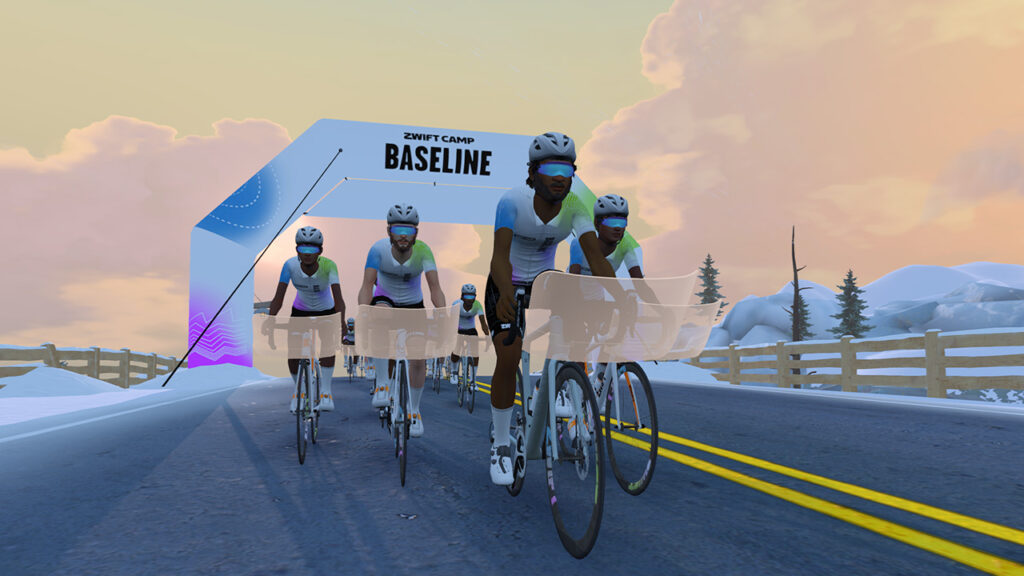
Event Schedule
While you can execute the six stages of Zwift Camp: Baseline in whatever order you’d like, Zwift says the program is best executed in sequence (as outlined above).
Zwift will be hosting hourly events for each stage of the Camp, but you can also complete them on your own schedule, on demand.
Here is a complete list of key dates for Zwift Camp: Baseline:
- Zwift Camp: Baseline Registration Opens: November 12 (in game or online)
- Stage 1 – Sprint Booster events: November 18-24
- Stage 2 – Sprint Test events: November 24-December 1
- Stage 3 – Attack the Bunch events: December 1-8
- Stage 4 – Attacking Test events: December 8-15
- Stage 5 – Endurance Elevator events: December 15-22
- Stage 6 – Elevation Evaluation events: December 22-29
- Sprinting/Attacking/Endurance Challenges Available: December 23 onward
- Makeup Events: December 29-January 5
Unlocks
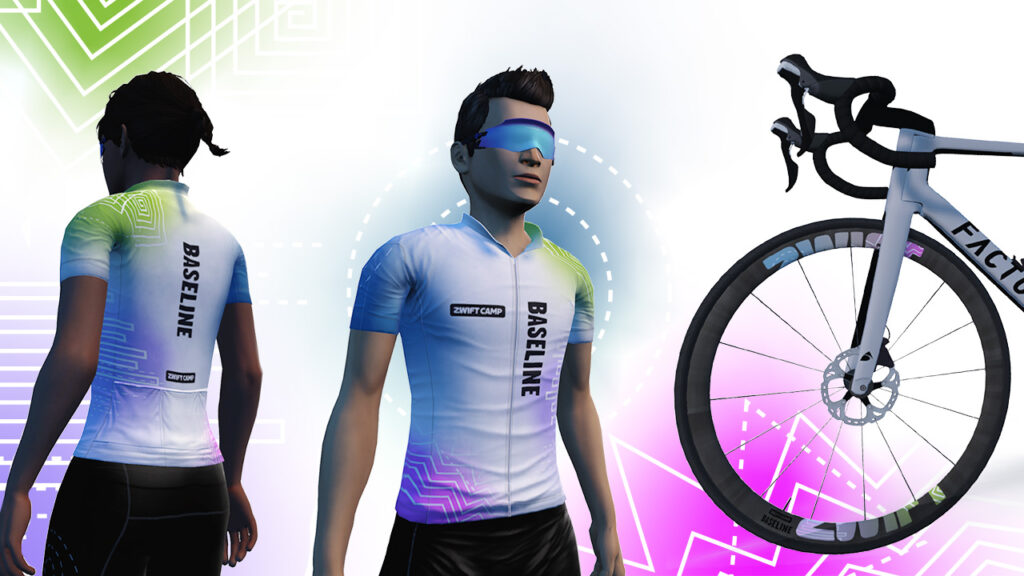
As you progress through the stages, you will unlock three exclusive rewards: the Baseline Kit (compete 1 stage), Oakley Katos (complete 3 stages), and Zwift Baseline Wheels (complete all stages).
Questions or Comments?
I’m excited to see Zwift moving into assessing riders’ fitness and helping them decide how to train next. The possibilities here are endless, and the potential benefits to Zwifters are massive!
But what do you think? Got a question or comment? Share below.
(More info is also available at the Zwift Camp: Baseline homepage and the Zwift Camp: Basline FAQ Support page.)
